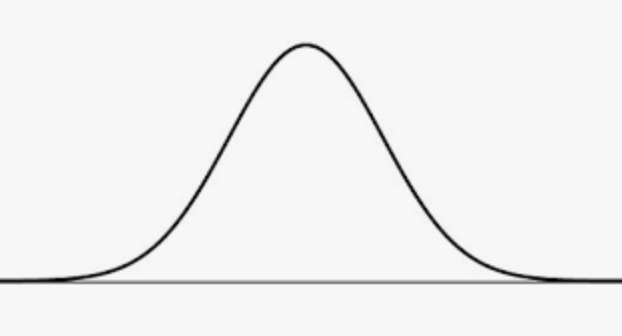Psych U1
1/62
Earn XP
Description and Tags
Name | Mastery | Learn | Test | Matching | Spaced | Call with Kai |
|---|
No study sessions yet.
63 Terms
Empiricism
knowledge acquired through observation gathering and analyzing data
Nature V Nurture
Nature - genetics
Nurture - experiences
Psychological Perspectives
Ways to explain behaviors
Biological Perspective
Explained by genetics, hormones, brain structure
Psychodynamic/Psychoanalytic Perspective
explained by unconscious urges and impulses; repression of childhood memories
Cognitive Perspective
Explained by thinking, problem solving, decision making, memory, reasoning, info processing
Behavioral Perspective
Explained by learning through associations rewards, observation/modeling
Humanistic Perspective
Explained by believing we are inherently good, we strive to reach our potential, unique perception, we have free will
Sociocultural Perspective
explained by societal and cultural factors, norms from family, peers, media, gender, religion, ethnicity
Individualist vs collectivist culture
Individualist - Focuses on individual
Collectivist - Focuses on the group
Evolutionary Perspective
Explained by need for surgical, survival of the fittest
Eclecticism
Combining more than 1 approach to explain behavior
Peer Reviewer
Other scientists who are experts evaluate a study's theory originality and accuracy
Theory
A hypothesis that has been tested with a significant amount of data
Hypotheses
A testable prediction, often implied by a theory
falsifiability
if we claim something is scientifically true, we must be able to specify what evidence it would take to prove it wrong
operational definition
a carefully worded statement of exact procedures used in research study
Non-experimental v experimental
Non-experimental - case studies, surveys, naturalistic observes
experimental - change variables to see effects
Case study
non-experimental technique where a group/individual is studied in depth
Survey
non experimental technique used to record self reported attitudes
Biases in surveys
social desirability bias, framing, self report
social desirability bias
the tendency for people to say what they believe is appropriate or acceptable
self report bias
bias when people report their behavior inaccurately
representative sample
true random sampling
biased sample
flawed sampling process that produces bad sample
random sample
each member has equal chance at inclusion
Population
all those in a group being studied
informed consent/assent
giving potential participants enough information to enable them to chose to participate
Debrief
post experimental explanation of study includes purpose and deceptions to its participants
Deceptions
only when essential participants are "lied" to or decieved
institutional review
process of examining studies for ethical concerns by a committee of peers
Confidentiality/Anonymity
part of ethics codes to keep participants info confidential
Risk/harm
Plagiarism can risk a scientist's career and fake science can cause harm.
Convenience Sampling
collecting research from an easily available group psych as friends at School
Risk
participants can not be placed at significant mental or physical risk. Requires interpretation by the review board.
Hypothesis
a testable prediction about the relationship between to variables
Quantitative Research/Data
Numbers
Likert Scale
a rating scale used to measure opinions, attitudes and motivations
Qualitative Research/Data
Narrative Data, no numbers
Structured Interview
Standardized method using predetermined questions
random assignment
assigning participants to experimental and control groups by chance, thus minimizing preexisting differences between the groups
experiment
a research method in which an investigator manipulates one or more factors to observe the effect on some behaviors or mental process. By random assignment of participants, the experimenter aims to control other relevant factors.
Experimental Group
in an experiment, the group exposed to the treatment that is one version of the independent variable
control group
not exposed to the treatment and acts as a comparison for evaluating the effect of treatment
Single blind
participants are ignorant about whether they have received treatment.
double blind
used often in drug evaluation, both doctor and patient are blind about whether research treatment or placebo has been given.
placebo effect
results caused by expectations alone because recipient assumes they have active agent
Independent variable
what is being manipulated
Cofounding variables
a factor other than the factor being studied
experimenter bias
researchers unintentionally influence results to confirm their own beliefs
dependent variable
the variable that may change when the independent variable is manipulated
validity
experiment tests what it is supposed to test
Quantitative Research
finds numerical data
Qualitative Research
finds narrative and descriptive data
informed consent
giving potential participants enough information about a study to enable them to choose whether they wish to participate
Debrief
explanation of a study, including its purpose and any deceptions, to its participants.
descriptive statistics
numerical data used to measure and describe characteristics of groups
skewed
a representation of scores that lack symmetry around their average value.
standard deviation
a representation of scores that lack symmetry around their average value.
normal curve

inferential statistics
a representation of scores that lack symmetry around their average value
statistically significant
a statistical statement of how likely it is that a result (such as a difference between samples) occurred by chance, assuming there is no difference between the populations being studied.
meta-analysis
using multiple studies in findings?